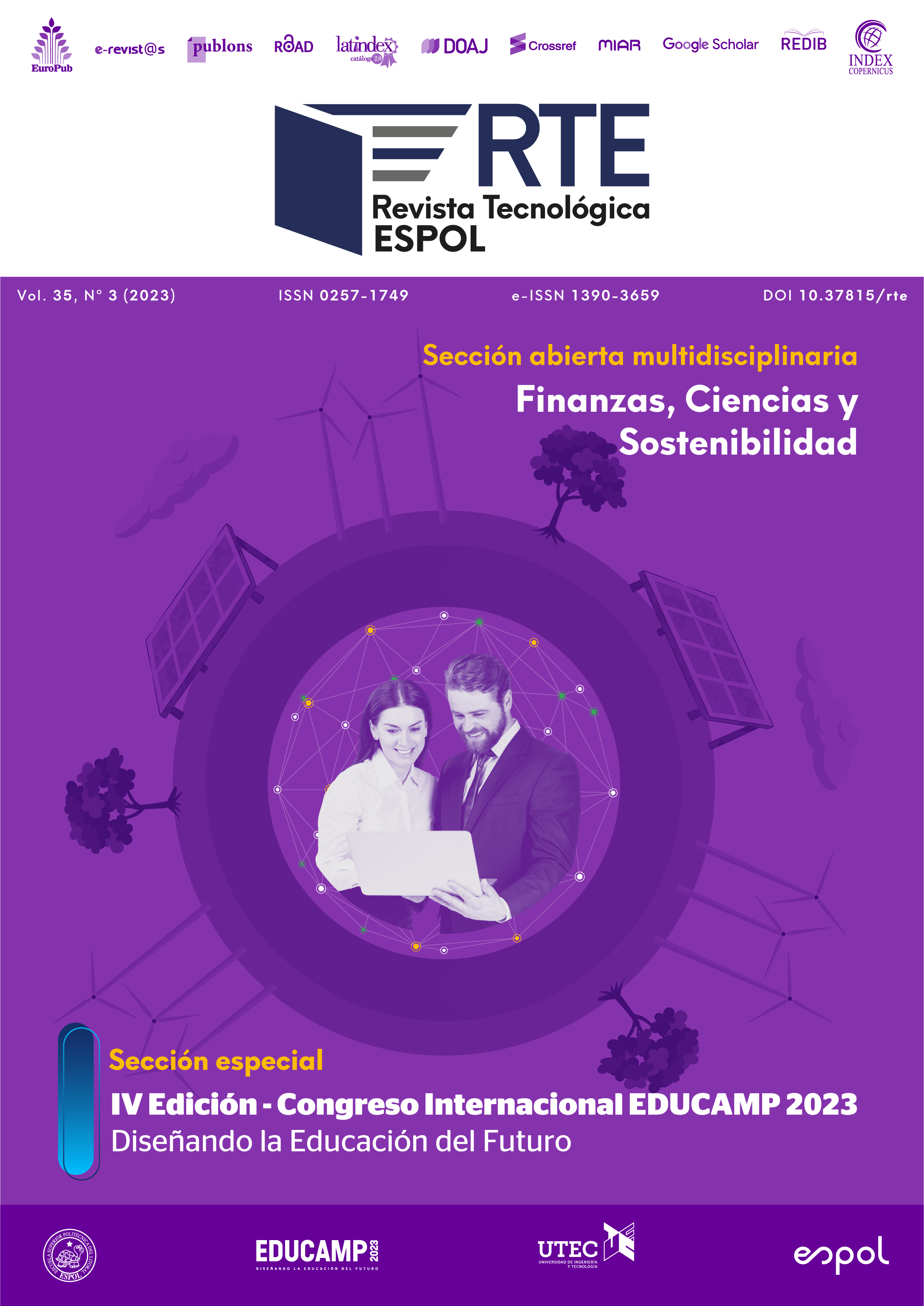En los últimos años, ha habido una amplia investigación centrada en la realimentación correctiva oral (CF), un aspecto esencial en el aprendizaje del inglés como segunda lengua/lengua extranjera (ESL/EFL) desde el punto de vista de los profesores y los lingüistas, pero muy poco desde la perspectiva de los estudiantes. La mayoría de los programas de educación superior en América Latina hacen grandes esfuerzos para reforzar sus programas de EFL debido a la relevancia del idioma para la mayoría del desarrollo profesional. Con el objetivo de contribuir a mejorar las estrategias de realimentación correctiva que promueven una mejor comunicación oral, esta investigación recoge la percepción de los estudiantes sobre la realimentación correctiva oral dada por los profesores en los cursos de EFL en dos universidades privadas de San José, Costa Rica. Esta investigación es de carácter descriptivo, transversal y cuantitativo. La recolección de datos requirió la aplicación de un cuestionario en línea, el cual fue respondido voluntariamente por 160 estudiantes A1/A2 del programa EFL de estas universidades. Se interrogó sobre su actitud general hacia la CF y la importancia que le conceden, la frecuencia con la que les gusta recibir realimentación, qué tipo de errores consideran que deberían corregirse y la preferencia por la corrección de errores de entre una selección de siete tipos estándar. Los resultados obtenidos demuestran percepciones positivas respecto a la realimentación recibida de los profesores sobre todo tipo de errores. Los participantes expresaron su deseo de ser corregidos permanentemente cuando se produce una desviación en la gramática, el vocabulario o la pronunciación. El método preferido de realimentación correctiva fue la corrección explícita, seguida de recast y la clarificación; la corrección metalingüística y las señales no verbales fueron las que menos gustaron. Los resultados corroboran la necesidad de incluir comentarios correctivos orales sobre gramática, vocabulario y pronunciación, tal y como esperan los estudiantes.

Esta obra está bajo una licencia internacional Creative Commons Atribución-NoComercial 4.0.
Referencias
Abarca Amador, Y.(Enero-julio 2008) Learner attitudes toward error correction in a beginners English class Revista Comunicación, Volumen 17, año 29, No. 1, Enero-Julio, 2008 (pp. 18-28).
Aguilera Leyva, M. (Nov 12, 2020) Preferences toward Oral Corrective Feedback in EFL classrooms at ESPOCH . Ciencia Digital, 4(4.1), 58-80. https://doi.org/10.33262/cienciadigital.v4i4.1.1454
Alamri, B. & Fawzi, H. (2016) Students’ Preferences and Attitude toward Oral Error Correction Techniques at Yanbu University College, Saudi Arabia. English Language Teaching, Vol. 9, No. 11, 59-65.
Ananda, D. R., Febriyanti, E. R., Yamin, M., & Mu'in, F. (2017). Students' preferences toward oral corrective feedback in speaking class at English department of lambung Mangkurat university academic year 2015/2016. Theory and Practice in Language Studies, 7(3), 176-186. https://doi.org/10.17507/tpls.0703.03
Corder, S.P (Nov. 1967) The Significance of Learners’ Errors. IRAL International Review of Applied Linguistics in Language Teaching, Vol. 4, 161-170.
Escobar-Pérez, J. & Cuervo-Martínez, A. (2008). Validez de contenido y juicio de expertos: una aproximación a su utilización. Avances en Medición, 6, 27-36.
Espinoza Murillo, L. & Rodríguez Chaves, J.D. (2016) Corrective Feedback in Conversation Courses at CEIC, Alajuela Site. Revista de Lenguas Modernas, N° 24, 2016, 295-316.
Eyengho, T. & Fawole,O. (2017) Students’ Attitude towards Oral Error Correction Techniques Employed by Secondary School Language Teachers in South Western Nigeria. Journal of Social Science for Policy Implications, June 2017, Vol. 5, No. 1, 46-51. DOI: 10.15640/10.15640/jsspi.v5n1a5
Gutiérrez, A., Arancibia, C., Bustos, C., Mora, F., Santibáñez, X., & Flores, M. (2021). Students’ perceptions of oral corrective feedback given by teachers in communicative approach English courses from an EFL pedagogy program at a private university. Lenguas Modernas, (56), 9–26. Recovered from https://revistas.uchile.cl/index.php/LM/article/view/61507
Ha, X.V. & Nguyen L.T. (June 2021) Targets and Sources of Oral Corrective Feedback in English as a Foreign Language Classrooms: Are Students' and Teachers' Beliefs Aligned? Frontiers in Psychology. https://doi.org/10.3389/fpsyg.2021.697160
Inci-Kavak, V. (January 2019) Exploring the Gap between Instructors’ and Learners’ Preferences about Error Correction. ELT. Journal of Theoretical Educational Science, 13(1), 116-146. http://dx.doi.org/10.30831/akukeg.537175
Junfei Li, & Dingliang Tan, ( 2022) Resurveying Corrective Feedback Meta-Analysis, Mobile Information Systems, vol. 2022, Article ID 3444160, 9 pages, https://doi.org/10.1155/2022/3444160
Katayama A. (2007) Japanese EFL Students` Preferences toward Correction of Classroom Oral Errors. The Asian EFL Journal, 9(4), 289-305.
Krashen, S.D. (1982). Principles and practice in second language acquisition. Oxford: Pergamon Press.
Lee, E. ( June, 2013) Corrective feedback preferences and learner repair among advanced ESL Students. Science Direct, 41(2), 217-230. https://doi.org/10.1016/j.system.2013.01.022
Lee, N. (1991) Notions of “error” and appropriate corrective treatment. Hong Kong Papers in Linguistic and Language Teaching, v14, 55-70 https://www.semanticscholar.org/paper/NOTIONS-OF-%27ERROR%27-AND-APPROPRIATE-CORRECTIVE-Lee-Baptist/27698674ccdeb7d4bf8b80ce2fe5761ca516f791
Lizazi-Mbanga, B. & Mapulanga, P. (Aug 2021) Factors that influence attitudes to and perceptions of public libraries in Namibia: user experiences and non-user attitudes. SA Jnl Libs & Info Sci 2021, 87(2).
Lorincz, K (2014) L2 Learner Perceptions of Interactional Feedback, 1: Vol. 3 , Article 10. Available at: https://repository.stcloudstate.edu/stcloud_ling/vol3/iss1/10
Lwin, S. M., & Yang, D. (2021). Oral corrective feedback in a chinese university EFL classroom context. Malaysian Journal of ELT Research, 18(2), 32-47. doi: https://doi.org/10.52696/WIVS9084
Lyster, R., & Ranta, L. (1997). Corrective feedback and learner uptake: Negotiation of form in communicative classrooms. Studies in second language acquisition, 19(1), 37-66.
Milla Melero, R (2011) Corrective feedback in oral interaction: A comparison of a CLIL and an EFL classroom. Master Thesis. Universidad Pais Vasco.
Oladejo J. (1993) Error correction in ESL Learners` preferences. TESL Canada Journal, (10)2, 71-89.
Pickens, J. (2020) Attitudes and Perceptions Chapter 3 in Borkowski, N. and Meese, K.A., 2020. Organizational behavior in health care. Jones & Bartlett Learning . https://pdf4pro.com/view/attitudes-and-perceptions-jblearning-com-45ed70.html
Rezaei, S., Mozaffari, F., & Hatef, A. (March 2011) Corrective Feedback in SLA: Classroom Practice and Future Directions. International Journal of English Linguistics.1(1).
Tavacoli, M & Nourollah Z. (June, 2016): Differential effects of explicit and implicit corrective feedback on EFL learners’ willingness to communicate. Innovation in Language Learning and Teaching, DOI: 10.1080/17501229.2016.1195391
Tomczyk, E. (September 2013) Perceptions of Oral Errors and Their Corrective Feedback: Teachers vs. Students. Journal of Language Teaching and Research, Vol. 4, No. 5, pp. 924-931.
Truscott, J. (1999). What's wrong with oral grammar correction. The Canadian Modern Language Review, 55(4), 437-456. https://doi.org/10.3138/cmlr.55.4.437
Tsuneyasu, M. (2016) Teacher’s tendencies and Learner’s preferences regarding corrective feedback types. International Christian University Repository. oai:icu.repo.nii.ac.jp:00004450







